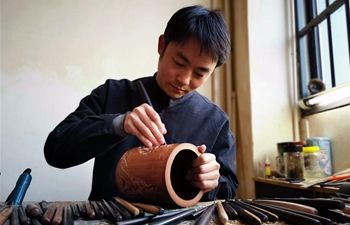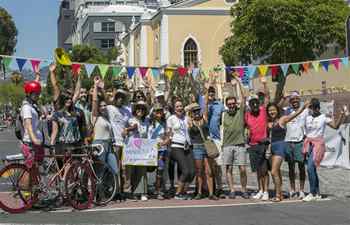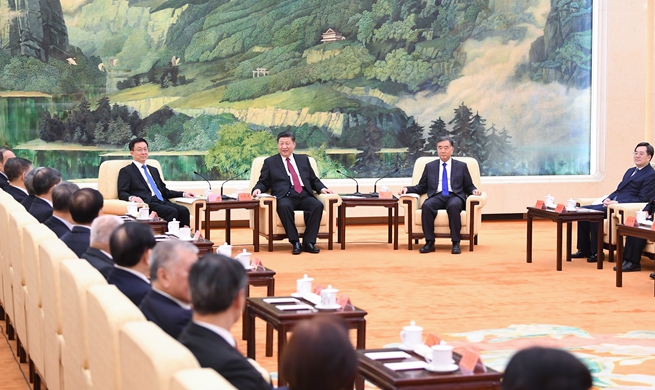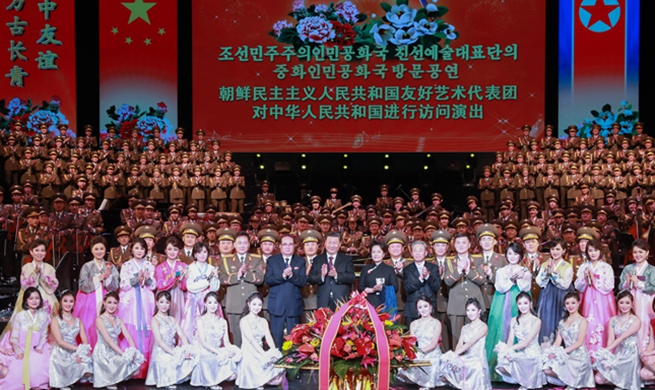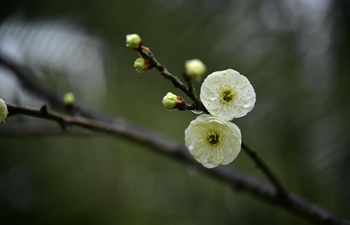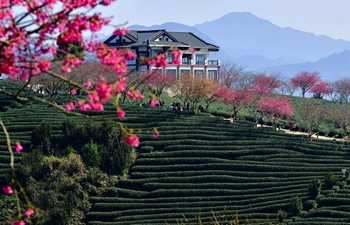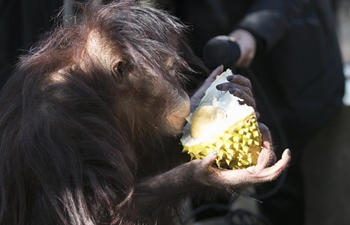NAIROBI, Jan. 29 (Xinhua) -- At fresh produce markets across Kenya, citizens are shunning buying bigger tomatoes, mangoes, pawpaws or oranges for fear that they may be genetically modified.
The fear is extended to even poultry products where chickens that are too big are classified as genetically modified organisms by consumers and shunned therefore.
The misconception is widespread across the East African nation that fresh produce traders and even supermarkets avoid stocking such products.
"I stopped selling those excessively big tomatoes or mangoes because each buyer who would come here would ask if they are genetically modified," Grace Mutuku, a vegetable seller in the eastern Nairobi, said on Tuesday, adding that besides the misconception, the high cost of such produce also puts off buyers.
As Kenya readies to introduce genetically modified cotton this year, agricultural experts are calling for increased public awareness of what the products are about if the fear is to be eliminated.
President Uhuru Kenyatta last year directed the ministries of health, agriculture and trade to develop "a quick mechanism to revive production in the cotton sector," in particular by farming genetically modified cotton, also known as Bacillus thuringiensis (Bt) cotton.
The East African nation, through the Kenya Agricultural and Livestock Research Organisation, is also working on production of Bt maize as the country grapples with increased pests and diseases amidst climate change.
The current moves take Kenya steps closer to becoming the forth country in Africa to introduce GMOs after Botswana, Sudan and South African.
"We need to increase awareness among the public on what the GMOs are and the benefits the country would accrue if we adopt them," said Anne Maina, the national coordinator of the Kenya Biodiversity Coalition.
Maina noted that Kenya is aggressively exploring the possibilities of farming Bt cotton and profiling the crop as the panacea to lift the textile industry yet there is no public education and engagement on whether the country is ready for the technology.
"We need an all-inclusive nationwide discourse through public participation, which addresses whether the technology is appropriate for us. Consumers need to also be told what the crops are and look like," she added.
A 2012 ban on GMOs by the government is still in force in Kenya, with the agricultural experts noting that by moving to introduce the crops with the ban still intact, Kenya is putting the cart before the horse.
"We should not be considering the possibilities of Bt cotton farming and profiling yield increases from genetically modified maize when the 2012 ban on GMOs is still in effect and a public engagement on whether the country is ready for this technology has not been done," said Karen Nekesa from African Biodiversity Network.
She noted that in 2013, the government set up a task force to review matters on genetically modified foods and safety and also assess the country's readiness for the adoption of crops.
"The report was completed in 2014 but nearly five years later, it has not been released to the public. Such documents should be released for better consumer knowledge," she said.
Renee Olende from Greenpeace Africa said that while the Bt cotton is said that it would be used in the manufacturing sector only, a lot of it would end up as human food.
"The by-products of cotton are used in the manufacture of animal feeds and in the making of cooking oil. These products are consumed by people, therefore, they need to be aware what they would be eating," said Olende.
As Kenya seeks to boost food security, the experts warned that Kenyans should not embrace GMOs when the country is not ready.



